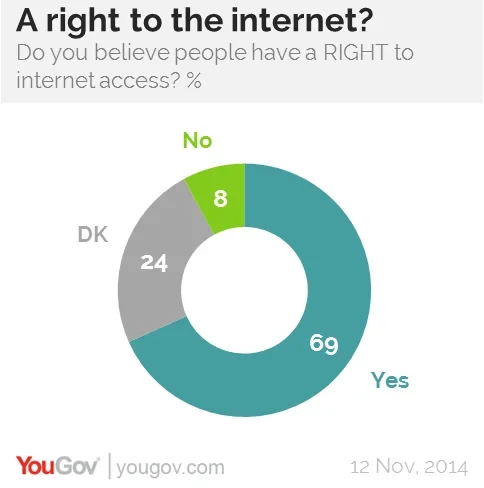69% of British people think there is a right to internet access – and they tend to believe in ‘net neutrality’
Barack Obama made a statement supporting ‘net neutrality’ on Tuesday, speaking out against companies who want to charge customers extra for websites that use too much bandwidth. While not directly affecting Britain, whose internet service providers voluntarily agreed to treat data equally in 2012, some see the President’s stance of discouraging discrimination against certain content (via blocking, throttling or paid prioritisation) as a precedent, and a nod to the so-called ‘right to the internet’.
New YouGov research finds that British people believe there is such a right, and while most people are unfamiliar with the term ‘net neutrality’, they tend to back the idea behind it.

In an online survey the British public believe people have a right to internet access, by 69-24%. This is uniform across all demographics measured.
Only 18% of the general public are acquainted with the term ‘net neutrality’, though young people are more likely to have heard of it (39% among 18-24 year olds). Even so, when presented with an alternative to net neutrality – allowing internet service providers to make deals in which some companies (e.g. movie streaming services) pay to have their online content load faster than other content – people tend to be opposed, by 49-20%.
Taking the idea of the right to the internet even further, political campaigns such as the Labour Digital group have suggested that “government should assess the viability of providing free basic internet access to all citizens, possibly as a requirement for participation in 5G auctions, or targeted at children eligible for free school meals”.






